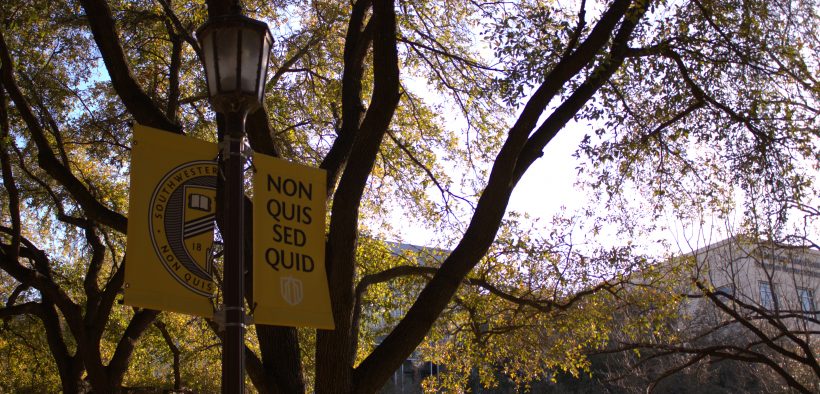Civil Discourse and Students: How the Civil Discourse festival and events impacted students at Southwestern University
Share

In February, the Civil Discourse Project was announced to students on campus. This project was advertised to be a two day event that would end in an election watch party on Super Tuesday. The Civil Discourse Project was promoted in order to bridge the political divide in the year of a presidential election. The project focused on a bipartisan view and looked at the Republican and Democrat sides of the debate and politics. In addition, multiple student organizations were asked to help participate by hosting a booth under the organizations’ name and host an activity that promotes civil discourse and gets attendees conversing.
While some students joined in to work on this project and help oversee it, other students on campus were wary of what “civil discourse” means and how the event was carried out.
While the event was created to promote bipartisan civil discourse, some students believed the organization of the event left out marginalized groups that should have had a place at the event. “Honestly, [I’m] over it. I’m angry and tired; and tired of being angry. At Southwestern as an institution, of students being complacent and complicit, in the silencing erasure of marginalized bodies (POC/Queer) on campus.” said junior Corrine Ramirez.
Students who were in favor of the event spoke about the positives of fostering such an event on campus.
“I saw this festival as a way to prepare the Southwestern and the Georgetown community for the big election coming up in November. No two individuals have the same beliefs, even if they affiliate with the same political party. I believe it is important to value each other’s beliefs and to be able to listen to each other – even when we are in disagreement.” said junior, and Civil Discourse Project organizer Laura Rativa.
Following the event, there is a planned Civil Discourse forum to discuss the different events and how to make them better. This forum will be held on March 25 at 7:30 pm, and led by those who helped plan the Civil Discourse Project, all students are welcome to attend.
“Once again the individuals that were not invited to participate in the civil discourse festival were also not invited to participate and plan/organize this post-event forum,” said Ramirez. “Might I also add that, this post-event forum was originally proposed as an “open conversation” between the organizers of the civil discourse festival and those that organized the demonstration of the festival; however, because the organizers felt as though they would have more power and would prefer to control, censor, and dominate the conversation they made it a panel where only one organizer of the demonstration was asked to participate as a part of the panel.”
While some students are concerned about how this forum will run and the effects it may have other students are eager to discuss everyone’s thoughts and see this forum as a positive way to debrief on the event as a campus.
“There is a group of students that felt like our intentions were to exclude them from the festival and that is why we will have a forum,” said Rativa. “At the forum, we want to hear feedback from multiple perspectives about the festival… We want everyone to feel included and to feel free to express their opinions. This project is for the Southwestern community and we want to fix or prevent those mistakes that made anyone feel uncomfortable for future events.”
The Megaphone will continue to stay updated and report on its diverse student body’s opinions on this event and its forum to follow.
